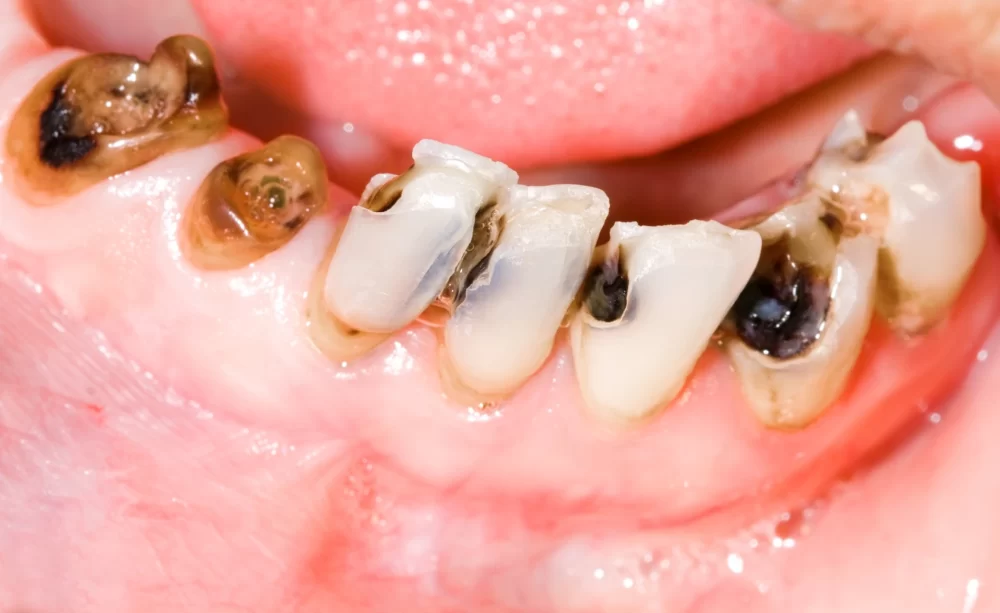
- oral-health-challenges-linked-to-hypertension
- medications-and-the-risk-of-dry-mouth
- preventive-dental-care-strategies-for-hypertensive-patients
- real-story-managing-dental-health-with-high-blood-pressure
- foods-habits-and-lifestyle-for-better-oral-health
- working-with-your-dentist-to-manage-risk
1. Oral Health Challenges Linked to Hypertension
People with high blood pressure often face unique oral health challenges. The connection between cardiovascular and dental health is more than coincidental—systemic inflammation that contributes to high blood pressure can also increase the risk of gum disease and decay. Moreover, poor dental hygiene may further elevate inflammation, forming a dangerous cycle. Understanding the importance of dental care for hypertensive patients is crucial in breaking this loop and safeguarding both your mouth and your heart.
1.1 How Hypertension Affects the Mouth
High blood pressure itself doesn’t directly cause tooth decay, but the conditions associated with it—such as reduced blood flow to the gums and increased inflammation—can lead to gum recession and tooth vulnerability. Additionally, patients with hypertension are more likely to experience complications during dental procedures if blood pressure isn’t well controlled.
2. Medications and the Risk of Dry Mouth
Many medications prescribed for hypertension, including diuretics, beta-blockers, and ACE inhibitors, can lead to xerostomia, or dry mouth. This may seem minor, but reduced saliva flow significantly increases the risk of tooth decay, bad breath, and oral infections. Saliva is essential for neutralizing acids, flushing away bacteria, and maintaining overall oral balance.
2.1 Symptoms to Watch For
If you frequently feel parched, have trouble swallowing, or notice a sticky sensation in your mouth, you may be dealing with dry mouth. It’s important to discuss these symptoms with both your physician and dentist, as untreated dry mouth can accelerate decay and gum damage.
3. Preventive Dental Care Strategies for Hypertensive Patients
Preventing tooth decay in people with high blood pressure involves more than just brushing twice a day—it requires an informed, tailored approach to oral hygiene that addresses both medical and dental realities.
3.1 Daily Oral Hygiene Essentials
Use fluoride toothpaste and a soft-bristled brush to minimize gum abrasion. Floss daily or use interdental brushes to clean between teeth. Because dry mouth is a major concern, consider using a fluoride mouth rinse or saliva-enhancing product recommended by your dentist.
3.2 Timing Your Dental Visits
It’s best to schedule appointments during times of the day when your blood pressure is most stable—often mornings. Always inform your dentist of any medications or changes to your health. If your pressure is too high on the day of the visit, the dentist may need to postpone treatment to avoid complications.
4. Real Story: Managing Dental Health with High Blood Pressure
Linda, a 58-year-old teacher with controlled hypertension, noticed her gums were bleeding more often. Despite regular brushing, she’d neglected dental visits for over two years, thinking her oral health was fine. Her dentist identified early-stage gum disease and dry mouth due to her medications. With a personalized dental plan that included hydration reminders, a prescription mouth rinse, and more frequent cleanings, Linda regained control over her oral health and avoided more serious complications. Her story highlights how proactive care can prevent tooth decay even under complex medical conditions.
5. Foods, Habits, and Lifestyle Adjustments for Better Oral Health
What you eat and how you live significantly influence both blood pressure and oral health. Diets rich in calcium, fiber, and water-dense fruits and vegetables not only support your cardiovascular system but also protect teeth and gums. Limit sugary and acidic foods that promote decay, especially if your saliva production is low.
5.1 Avoiding Common Pitfalls
Chewing on ice, using alcohol-based mouthwashes, or sipping sugary drinks throughout the day can worsen dry mouth and weaken enamel. Instead, choose water with added electrolytes (if permitted by your physician) and sugar-free gum to stimulate saliva flow.
6. Working With Your Dentist to Manage Risk
People managing high blood pressure should maintain open communication with their dentist. Bring a list of medications and inform the dental team of any cardiovascular events or recent changes in health. In return, your dentist can tailor treatment plans—whether it’s using anesthetics without vasoconstrictors or providing saliva substitutes to reduce decay risks.
6.1 Why Consistency Matters
Don’t wait for pain to drive you to the dentist. Consistent care is especially vital when balancing multiple health conditions. Routine cleanings and early intervention can keep dental issues from compounding existing health problems. Visit Dentistry Toothtruth for curated dental care solutions specifically suited for individuals with hypertension and other chronic conditions.







 Risas Dental and Braces - Boulder Crossings4.0 (312 review)
Risas Dental and Braces - Boulder Crossings4.0 (312 review) Love Dental Arts5.0 (66 review)
Love Dental Arts5.0 (66 review) Absolute Dental - Aliante4.0 (910 review)
Absolute Dental - Aliante4.0 (910 review) Passyunk Dental Group4.0 (144 review)
Passyunk Dental Group4.0 (144 review) I. Stephen Brown, DDS, FACD, FICD4.0 (37 review)
I. Stephen Brown, DDS, FACD, FICD4.0 (37 review) Children's Dental Health of Downingtown4.0 (658 review)
Children's Dental Health of Downingtown4.0 (658 review) The Importance of Oral Health Education During Pregnancy for a Healthy Pregnancy
The Importance of Oral Health Education During Pregnancy for a Healthy Pregnancy Best Tips for Brushing Your Teeth Properly for Healthy Gums: Essential Techniques for Oral Health
Best Tips for Brushing Your Teeth Properly for Healthy Gums: Essential Techniques for Oral Health Why Skipping Dental Checkups Can Lead to Bigger Oral Health Problems
Why Skipping Dental Checkups Can Lead to Bigger Oral Health Problems Advantages of Porcelain Dental Restorations
Advantages of Porcelain Dental Restorations How Can Diabetes Cause Tooth and Gum Problems? Preventing and Managing Oral Health Issues
How Can Diabetes Cause Tooth and Gum Problems? Preventing and Managing Oral Health Issues Healthy Habits for Promoting Good Oral Health and Hygiene: Tips for a Healthy Smile
Healthy Habits for Promoting Good Oral Health and Hygiene: Tips for a Healthy Smile